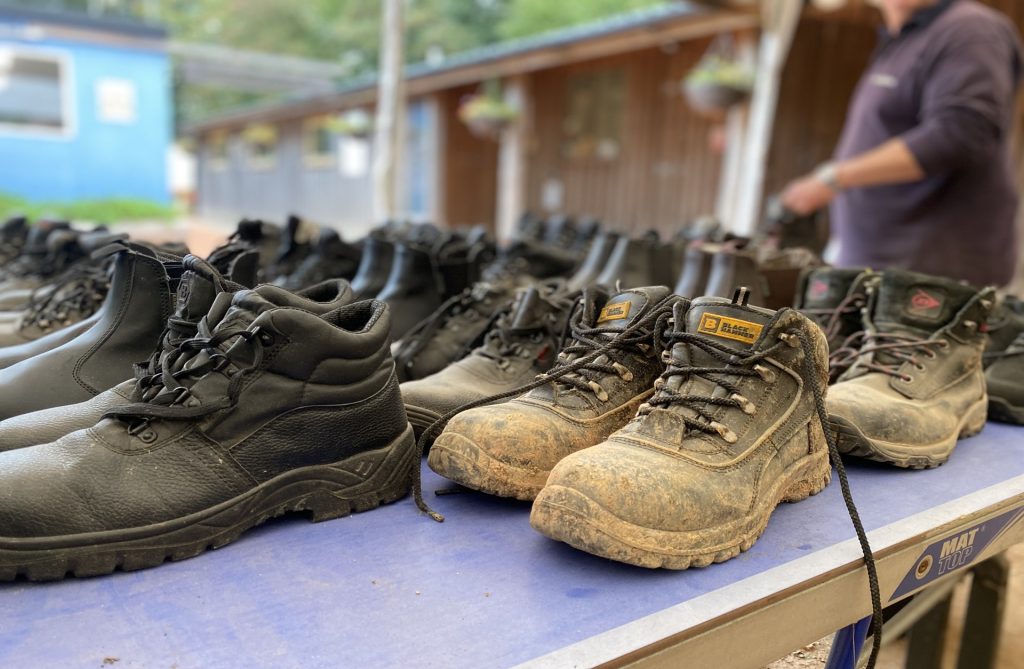
Hello,
I’ve just been reading a newspaper article – Ministers are pushing through powers to photograph and publicly name and shame people in the justice system who have been ordered to complete unpaid community work in England and Wales.
As I try to digest the madness of this idea, I look up. On my office walls are around 160 photographs of men and women who have been at LandWorks. They stare down proudly. They were proud to be part of LandWorks and that wall of photographs is a symbol of their achievement. They want to be there.
Our form of resettlement is not punitive, and it works. This approach stands in stark contrast to the proposed reforms. Public shaming risks pushing people further to the margins, disgracing families, and making it harder for them to find work, rebuild their lives, and move away from crime.
I also read about plans to send offenders straight into work; for example, repairing potholes. Let me be clear – this is also a flawed proposal.
My wall of faces tells the true story. Day one at LandWorks, they were not “work ready”. Yes, after some months they got there. They are capable, talented people. But on day one? No. It is far more complex than that for many people caught up in the criminal justice system.
LandWorks is not punitive, but we are also not about “tea and sympathy”. LandWorks is built on enterprise and production. We are proud of our work ethic and work environment.
But critically, we make time to understand everyone; their problems, what led them into crime, and that understanding shapes the support they need to move away from it.
We run a very structured day….
An average person will leave their accommodation (which can be a loose description of often poor conditions, sofa surfing, or hostels) at around 7:30am to get here for 8:45am. They will make it home after 5pm, tired but satisfied.
We do not shame people, but we do build self-worth and confidence. We do not punish people, but an average day here is challenging:
- Getting used to structure, responsibility and commitment.
- Having to face yourself is tough.
- Learning work skills and being part of a team.
- Sitting through a communal lunch is genuinely hard going at the start (especially for those who have never experienced eating like this) .
- Being held to account and looking at old behaviours.
- Talking about victims.
- Just working hard for a purpose.
A recent placement said to us on day one:
“I think it’s too late. I’ve fucked my life. It’s too late. I’ve fucked it. I’m too old. I’ve ruined it. It’s all happened too late.”
So, policy makers – you tell me: how would naming and shaming this individual help them, or help any of us?
Because after three months of support at LandWorks, the same person now says:
“I know what I want to do and I’m here, halfway to getting there. I need to do other stuff to go alongside it. I’m a lot better off now.”
We could have more radical reforms… perhaps Name and Praise.
Acknowledge and support those people who start to make the changes needed for a new life.
And why not set up a satellite LandWorks inside or next to a large construction site (or even Potholing HQ) with the objective of getting people work ready and then moving them into employment!
Chris
9th October 2025